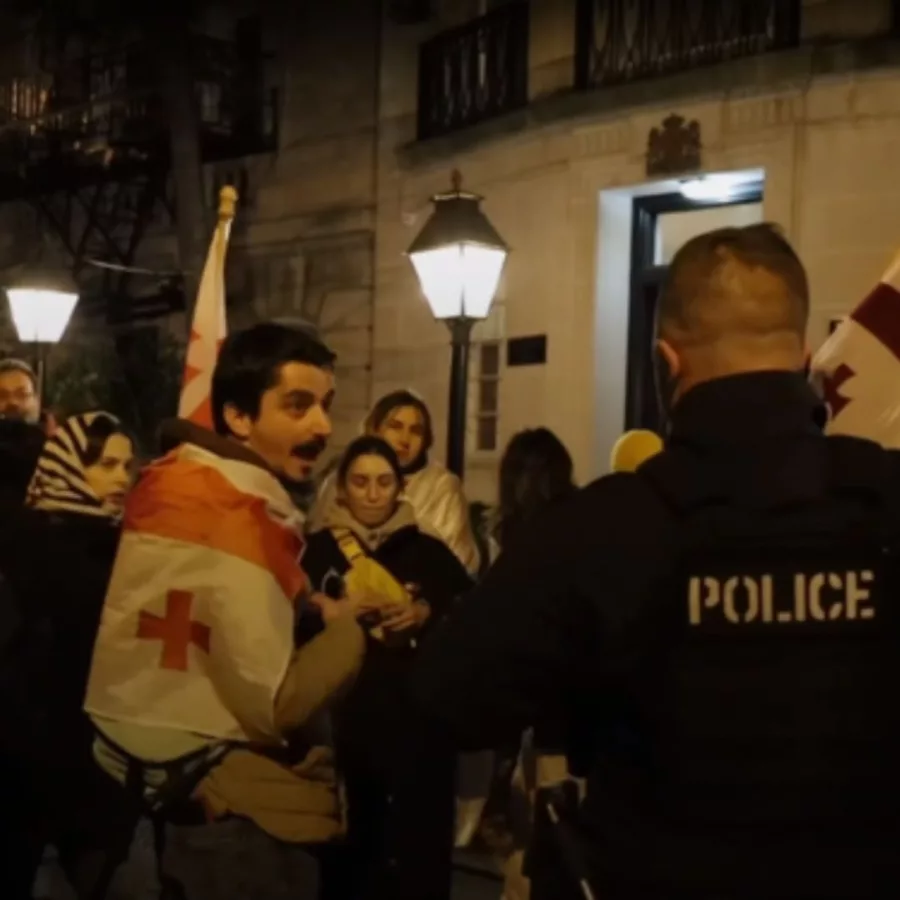Fellows call for Georgian state to protect human rights and end violence

John Smith Fellows from Georgia are calling for the state to protect human rights amid ongoing violence against peaceful protesters following the country’s parliamentary elections on 26 October.
Georgian Dream, the pro-Russia ruling party, claimed victory with 54% of the vote in the elections but pro-EU opposition parties say the result was falsified.
Since the election, the opposition held daily protests, while election monitors and European leaders continue to call for an investigation into allegations of fraud. Despite the protests the election has been certified, and a fight in the courts did not yield to resolving opposition claims due to court system also being captured by the ruling party, according to local civil society. The protests got bigger with Georgia Dream’s announcement about suspending EU accession talks. Thus, Georgians mobilised to defend their constitutional rights and to keep their EU integration hopes alive.
On 9 December, 36 Georgian Fellows issued a statement on Facebook, expressing profound concern for the way the state is responding to the peaceful protests: “We are witnessing mass searches, detentions and the use of disproportionate force against demonstrators and violation of their fair trial right.”
Fellows welcome UK support for Georgian protesters
The community of John Smith Fellows welcomed the UK’s support for pro-EU protestors following UK foreign secretary David Lammy announcing suspension of support for the Georgian government while there is a move away from ‘European democratic norms and freedoms’.
Nata Tsnoriashvili, John Smith Fellow, said: “We are calling on public servants to uphold the constitution and take all measures to de-escalate the situation and return Georgia to the path of integration into European and Euro-Atlantic structures”.
Violations observed before and during the elections
John Smith Fellow Giorgi Oniani is deputy executive director of Transparency International Georgia, one of the organisations involved in monitoring the elections. He described them as the worst-rigged elections he has ever seen.
“There was every violation possible,” he said. “It wasn’t innovative or sophisticated but basic fraud. All reliable polls showed the opposition was ahead. All state agencies were involved in violations. Evidence disclosed by a whistle-blower showed that the ruling party has a massive database of all voters. They knew who to bribe with money or benefits. They mobilised all their resources. All state institutions have been colluding with the ruling party to ensure most votes.”
Lack of voter secrecy
Tamar Oniani, John Smith Fellow, is the human rights programme director at the Georgian Young Lawyers’ Association (GYLA), which was also monitoring the election. She said: “GYLA had 610 observers all over the country making statements all day on 26 October and filing complaints to the Central Election Commission. In some regions and towns election observers were verbally and physically abused and they will document human rights abuses.”
Another issue was around diaspora voting – the processes through which Georgians living abroad could vote. Video evidence of long queues shared by Fellows showed huge deliberate obstacles for diaspora voting. People waiting up to six hours to vote, then it was too late. There was deliberate inefficiency. Where diaspora populations could vote, the Georgian Dream party lost.
Legal challenges as next steps
Transparency International and GLYA have disputed the results and legal challenges have been launched. Tamar explained that GYLA’s core legal argument was the violation of secrecy.
She said: “The ballot paper was such that those observing could see people’s votes. There were cases of cameras being focused on the voting boxes – a basic violation of privacy.”
Georgia’s lack of an independent judiciary, especially in the national courts, made legal challenges difficult. Other avenues to pursue may include the European Court of Human Rights.
Countering propaganda and populism
While the scale of the fraud means it’s very difficult to gauge Georgian Dream’s actual share of the vote, it’s clear that their populist messages are resonating with significant portions of the population.
For the opposition parties there is an issue around capacity to counteract Georgian Dream’s propaganda which uses fear tactics in their campaign around ‘saving the country from war’ and ‘saving children from becoming gay and lesbian’.
Many in our community of Georgian Fellows are calling for international friends to raise awareness of the electoral violations and urge their governments to investigate reported election fraud before recognizing results.
